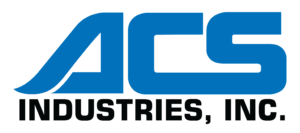Frontal airbags have been credited with saving over 50,000 lives in the U.S. alone since they were mandated by Congress in 1998 but the real story starts decades earlier. In the late 1960’s, Steven Buckler, President of ACS Industries, worked with Breed Corporation to develop filter components for the world’s first airbag with a sensor system that could trigger deployment milliseconds after a crash. Breed had been pushing airbags to the automotive industry since 1967 despite major auto manufacturers opposing the addition of these parts.
In 1966 Congress passed the motor Vehicles Act, mandating the inclusion of seatbelts in new vehicles but only about 25% of drivers were actually using the installed seat belts. Airbags were the logical answer; they could improve automobile safety without requiring active user adoption. When Congress proceeded to mandate airbags in new cars, Breed Corporation was the only company offering sensing technology with its airbags and was able to command the lion’s share of the newly booming airbag market. Breed corporation, which later became Key Safety Systems, combined with Takata to form Joyson Safety Systems, who remain a major ACS customer to this day.
For decades ACS’s airbag filter components were comprised of knitted mesh, while a competitor was producing woven mesh filters that were winning them an increasing share of the market in the early 2000’s. ACS was able to take advantage of far lower costs resulting from a superior manufacturing operational structure and strategically located facilities in Mexico to acquire the competitor and integrate their weaving technology into ACS’s portfolio.
ACS Industries then added expanding machines to the Mexico facility, granting us the capability to produce in-house the three major filter mediums: knitted mesh, woven mesh, and expanded metal. Expanded metal capabilities led to ACS’s greatest advancement in airbag filters: our patented Variable Expanded Metal, which consists of a single sheet of expanded metal containing differing pore sizes, the production of which is digitally monitored for conformity. The disparity in pore sizes across the resulting sheet of expanded metal allow the piece to simply be rolled up to create a circular filter with tortuosity and effectiveness comparable to that of wire mesh, but at over 35% less weight, a greatly reduced level of part complexity, and significantly reduced cost.
ACS then set out to automate the production of these filters with the purchase of 23 new robot arms placed in filter wrapping cells. At outset, ACS had three employees manning each filter wrapping station but now one worker can keep as many as 5 wrapping set-ups operating.
Through a combination of strategic partnerships with legendary automotive industry trailblazers, technological acquisitions, a commitment to lean manufacturing principles, and a cutting-edge R&D department, ACS has securely established itself as the global leader in pyrotechnic airbag inflator filters.
To find out how ACS can put these strengths to work to help your company meet its manufacturing goals, reach out to us at +1 866 783 4838 or www.acsindustries.com.


